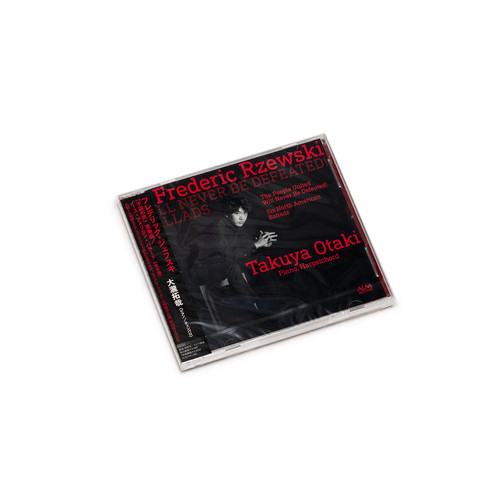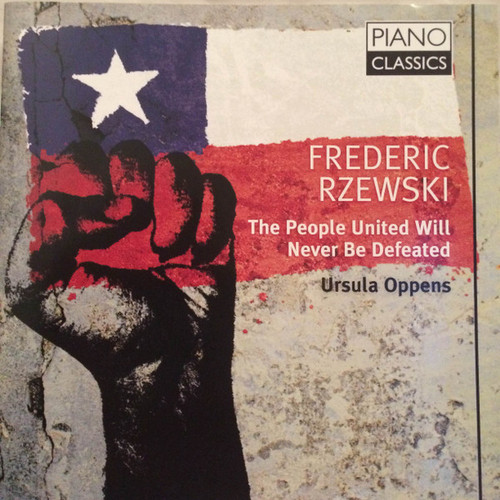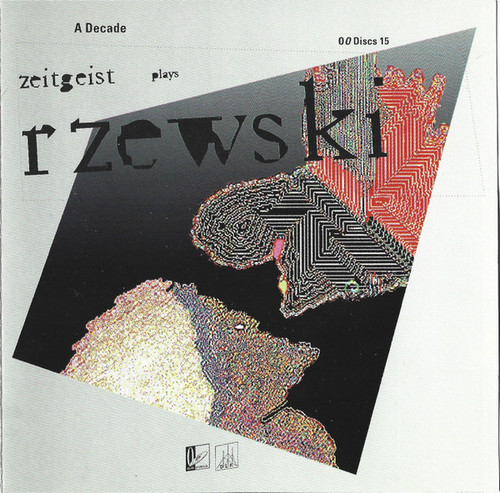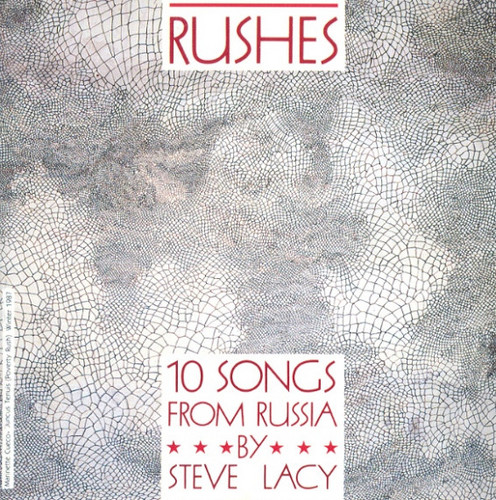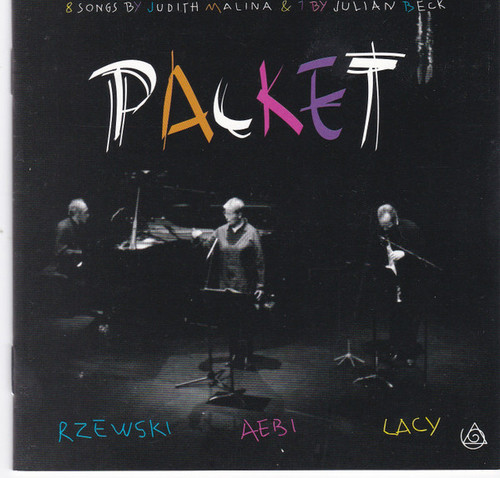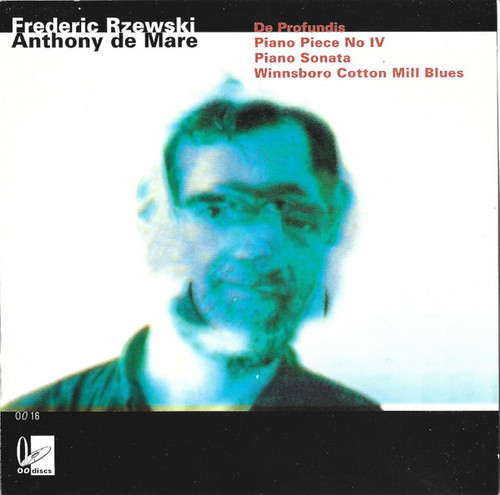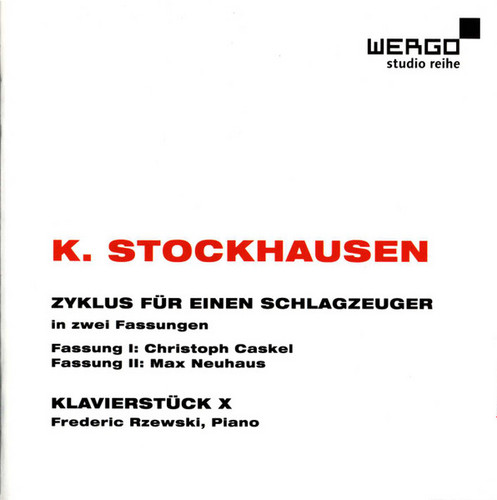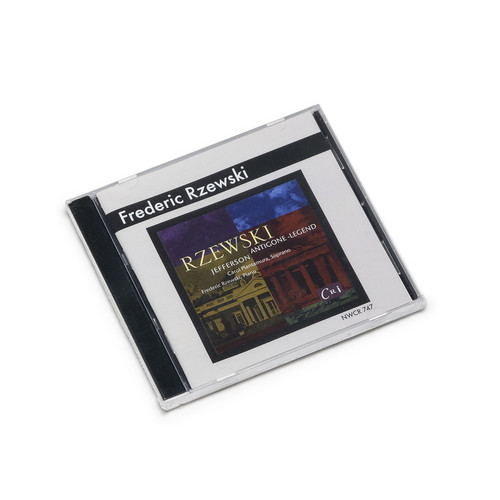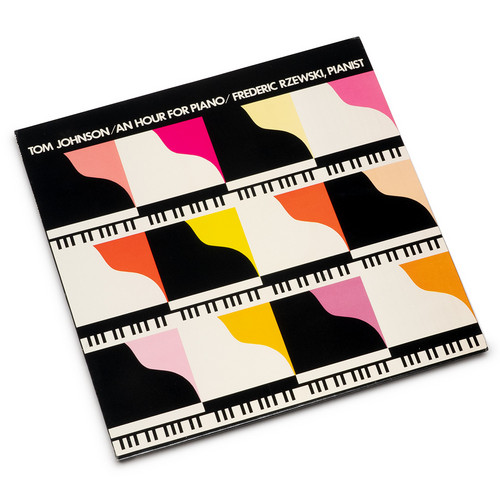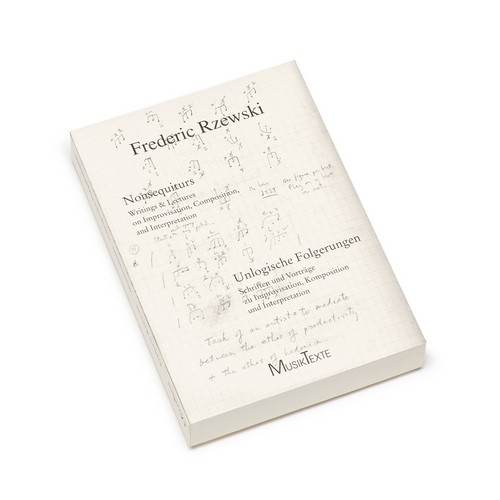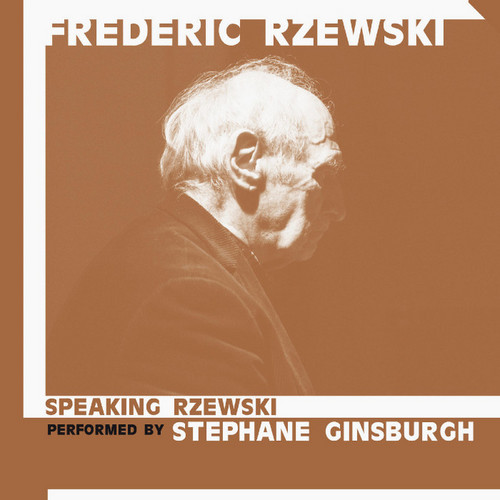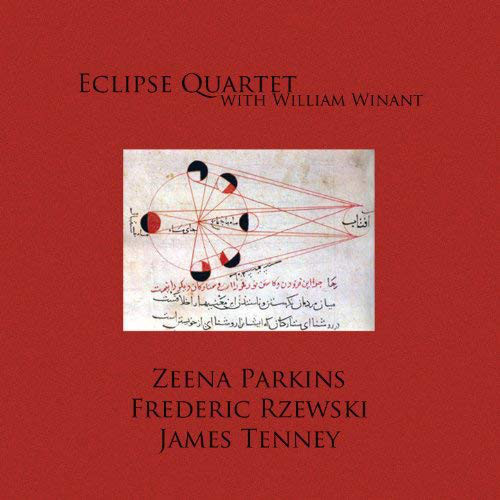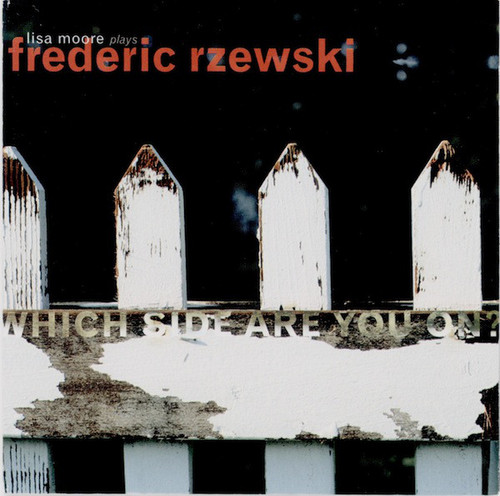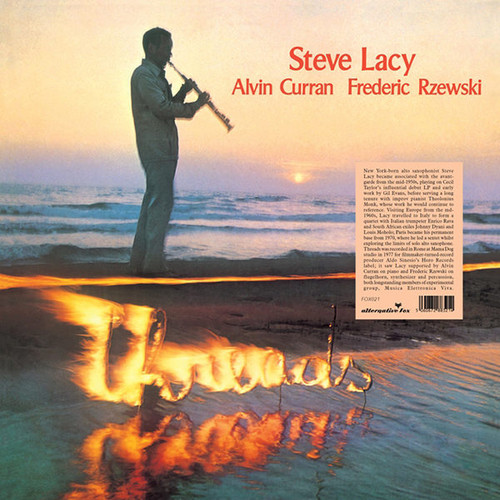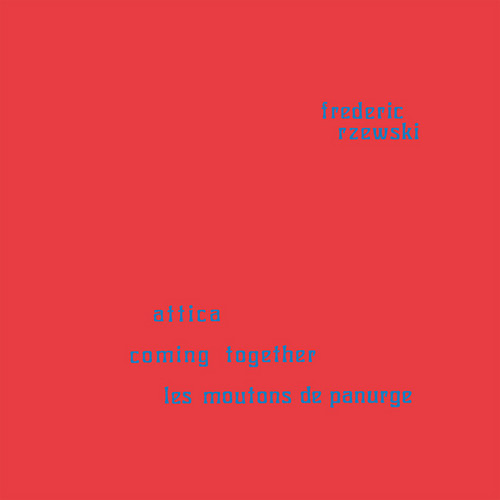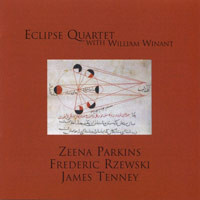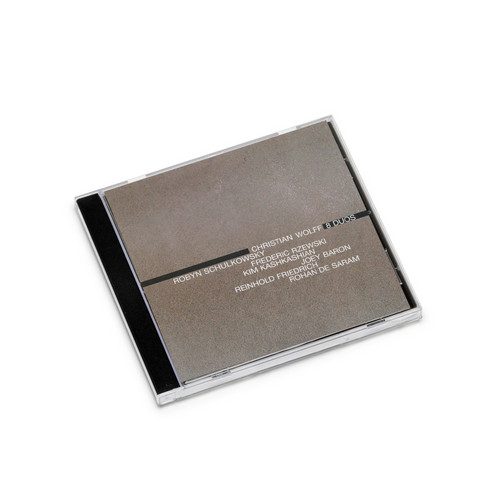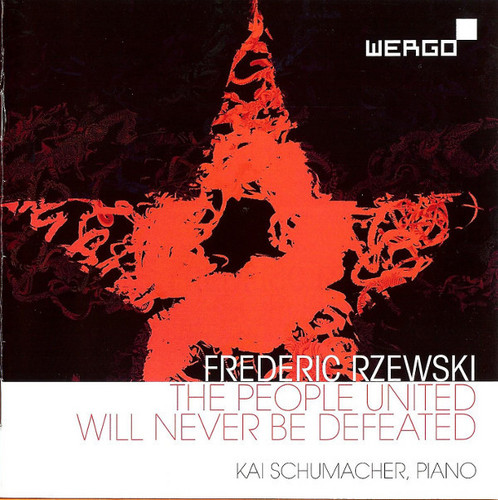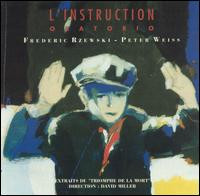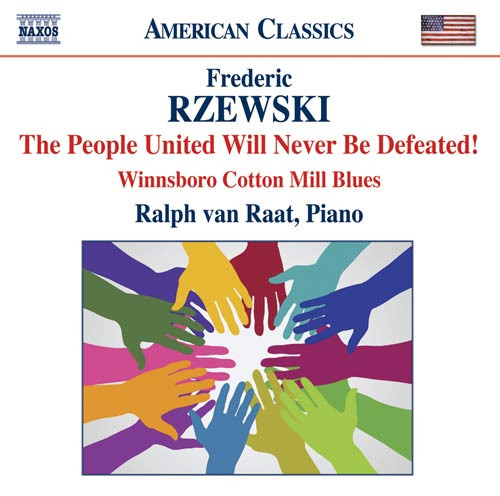Frederic Rzewski
Frederic Anthony Rzewski is an American composer and virtuoso pianist. He attended Harvard and Princeton, where his teachers included Randall Thompson, Roger Sessions, Walter Piston and Milton Babbitt. In 1960, he went to Italy, a trip which was formative in his future musical development. In addition to studying with Luigi Dallapiccola, he began a career as a performer of new piano music, often with an improvisatory element. A few years later he was a co-founder of Musica Elettronica Viva with Alvin Curran and Richard Teitelbaum. Musica Elettronica Viva conceived music as a collective, collaborative process, with improvisation and live electronic instruments prominently featured. Many of Rzewski's works are inspired by secular and socio-historical themes, show a deep political concience and feature improvisational elements.
Frederic Anthony Rzewski is an American composer and virtuoso pianist. He attended Harvard and Princeton, where his teachers included Randall Thompson, Roger Sessions, Walter Piston and Milton Babbitt. In 1960, he went to Italy, a trip which was formative in his future musical development. In addition to studying with Luigi Dallapiccola, he began a career as a performer of new piano music, often with an improvisatory element. A few years later he was a co-founder of Musica Elettronica Viva with Alvin Curran and Richard Teitelbaum. Musica Elettronica Viva conceived music as a collective, collaborative process, with improvisation and live electronic instruments prominently featured. Many of Rzewski's works are inspired by secular and socio-historical themes, show a deep political concience and feature improvisational elements.
The people united will never be defeated! / Six north American ballads
*2025 stock* A landmark new recording brings together two of Frederic Rzewski’s most powerful and socially engaged works, interpreted with striking intensity by pianist Takuya Otaki. At the heart of the release is The People United Will Never Be Defeated! (1975), a monumental set of 36 variations on the Chilean resistance song “¡El pueblo unido jamás será vencido!”, composed as an ode to solidarity and resilience in times of political struggle. Widely considered one of the pinnacles of late 20th…
The People United Will Never Be Defeated
2011 release ** "During the 1970s, the inspiring pianist Ursula Oppens commissioned Rzewski to write a set of variations that she would perform at Carnegie Hall together with Beethoven's Diabelli Variations. The result was a masterpiece of 20th century Romanticism, continuing the clear line from Beethoven through Brahms that faltered with the deaths of McDowell, Medtner, and Rachmaninov in the first half of the 20th century. Rzewski takes a catchy tune, a Chilean protest song, and pulls it apart…
A Decade
1994 release ** "Zeitgeist is an oddly comprised quartet with two percussionists, a keyboardist, and a woodwind player. Here, they perform four pieces by Frederic Rzewski written between 1984 and 1993, works rather different in character than the neo-romantic piano pieces for which he's better known. "Wails" derives influence from Greek theater, particularly Aeschylus, employing steel drums, sopranino saxophone, and bass clarinet in a very dance-like piece full of reedy twirls and light rhythms.…
Packet
1995 release ** "This work had its origin in the '60s. That's when I met Irene Aebi and Frederic Rzewski in Rome. The three of us have been working together ever since. The Living Theatre (founded by Julian Beck and Judith Malina in New York) was at that time very active in Italy and, as the most powerful and innovative theatre group anywhere, was becoming part of all our lives. I knew them from New York from the late '50s (The Connection, The Brig), and so did Frederic, who had composed and pla…
De Profundis / Piano Piece No IV / Piano Sonata / Winnsboro Cotton Mill Blues
1995 release ** "This reading by Anthony de Mare of pianist Frederic Rzewski's compositions is a revelatory reading, in that those works that were written for piano and voice have never been heard outside of the composer's own interpretations. There's the amplified heavy breathing at the beginning of "De Profundis" that gives way to an angular series of scalar arpeggios and staccato phrasing before a long written oratory inspired by Oscar Wilde. At over 26 minutes, and composed for de Mare, Rzew…
Zyklus Für Einen Schlagzeuger In Zwei Fassungen / Klavierstück X
2025 stock Under the title of “studio reihe neuer musik”, WERGO released outstanding recordings in the 1960s, thus creating a trademark of advanced contemporary music in the label's early days. On the occasion of its 50th anniversary, WERGO now releases these highlights of 20th-century music history in an excellent sound quality on CD for the first time.“studio reihe” now continues with works by Karlheinz Stockhausen:On this CD, “Zyklus für einen Schlagzeuger” [“Cycle for One Percussionist”] can…
Antigone-Legend / Jefferson
Carol Plantamura and Frederic Rzewski met in 1965 when they were both at the Center for the Creative and Performing Arts at the State University of New York (SUNY), Buffalo. After beginning to work together in 1966, they collaborated in Rome as members of the improvising collective Musica Elettronica Viva, and from 1966 to 1970 they performed together throughout Italy, Belgium, the Netherlands, and Germany as a piano-vocal duo. Jefferson was written for Carol Plantamura in 1970 as part of a seri…
An Hour For Piano
**Original 1979 copies, still sealed and log time stored (copies may have minimal wear on covers)** A trance music piece made up of repeating 4/4 cells in which an absolutely steady eighth-note motion predominates. Often several cells are going on simultaneously, and one cell frequently mutates into another through the addition or subtraction of a note or two. One has to step back far enough to get a perspective on the large-scale shifts in density and tonality before the impact of An Hour For P…
Nonsequiturs: Writings & Lectures on Improvisation, Composition and Interpretation (Book)
English-German edition, 576 pages (!) collection of writings about ideas concerning music by American composer Frederic Rzewski (April 13, 1938 – June 26, 2021) considered to be one of the most important American composer-pianists of his time. Rzewski’s anti-establishment thinking stood at the center of his music-making throughout his life. It was evident in the experimental, agitprop improvisations he created in the 1960s with the ensemble Musica Elettronica Viva; in “Coming Together,” the Mini…
Speaking Rzewski
"This album is the result of years of work and friendship with the composer. It started with De Profundis, a piece which has had a deep impact on me as a musician and a person, and ended with it. Frederic attended many of my performances of the piece, the last one during our last public concert together in early 2020 in Brussels. In the meantime, he wrote Dear Diary (2014) and America: A Poem (2020) for me which were both premiered at ARS MUSICA festival. I am very happy to present these pieces …
Spectral Malsconcities
The evolution of the string quartet repertory has accelerated during the last half of the twentieth-century and beyond as composers from both the mainstream and the avant-garde have mined its seemingly inexhaustible creative resources. This CD features the virtually unprecedented combination of string quartet and percussion. It contains three works by prominent American experimentalist composers from several generations exploring the ensemble’s unique sonic resources in diverse stylistic setting…
Which Side Are You On?
The first woman to record Frederic Rzewski's setting of Oscar Wilde's De Profundis, Bang on a Can/Steve Reich pianist Lisa Moore sheds powerful new light on Wilde's jailhouse meditation on imprisonment, debasement, and the barriers that he faced as a homosexual. Rzewski, a revolutionary American composer with associations in both the modern classical and avant-jazz worlds, has created an aggressively emotional soundtrack to Wilde's moving prose. De Profundis breaks down the boundaries between …
Threads
** Killer. Released in 1977 on Horo Records, first time available again after 40 years** New York-born alto saxophonist Steve Lacy became associated with the avant-garde jazz movement from the mid-1950s, playing on free jazz pianist Cecil Taylor’s influential debut LP and early work by the Canadian pianist Gil Evans, before serving a long tenure with the idiosyncratic improv pianist Theolonius Monk, whose work he would continue to reference throughout his career. Visiting Europe from the md-1960…
Attica / Coming Together / Les Moutons De Panurge
This milestone of the avant-garde music, published in 1974 by the historic Opus One, was a very significant political awareness. With Coming Together and Attica, Frederic Rzewski celebrates in music the famous revolt of the American prison in 1971. The texts of Sam Melville and Richard X. Clark make pulsating and alive the invocations of the prisoners; full of pathos, these fragments of life oscillate between a confessional tone and the hymn to freedom, in a touching emblem of compassion. The fi…
Works for String Quartet and Percussion
"The evolution of the string quartet repertory has accelerated during the last half of the twentieth-century and beyond as composers from both the mainstream and the avant-garde have mined its seemingly inexhaustible creative resources. This CD features the virtually unprecedented combination of string quartet and percussion. It contains three works by prominent American experimentalist composers from several generations exploring the ensemble's unique sonic resources in diverse stylistic settin…
8 duos
Born in 1934, Christian Wolff is the last surviving member of the group of composers that also included Morton Feldman and Earle Brown, which gathered around John Cage in New York in the 1950s. Wolff's own music has remained faithful to that Cageian experimental tradition ever since, and the eight works for pairs of instrumentalists here show how, in the right hands, the varying degrees of freedom his works allow their interpreters can produce astonishingly beautiful results. The common denomina…
The People United Will Never Be Defeated
Frederic Rzewski’s work “The People United Will Never Be Defeated” is based on the Chilean protest song, “¡El pueblo unido jamás será vencido!,” written by Sergio Ortega a few months before Pinochet’s military coup in September of 1973.Frederic Rzewski came to Europe as a young man, lived in Cologne and Rome, and created a sensation as an avant-garde pianist with his premiere of Karlheinz Stockhausen’s “Klavierstück X”. He worked with the leading composers of the time and was himself a composer.…
L' Instruction Oratorio
Frederic Rzewski is an American composer, now resident in Belgium, of mostly chamber, vocal and piano works that have been performed throughout the world; he is also active as a pianist. Prof. Rzewski studied music privately with Charles Mackey in Springfield as a child and studied composition with Walter Piston and Roger Sessions, counterpoint with Randall Thompson and orchestration with Claudio Spies at Harvard University from 1954-58. He studied composition with Milton Babbitt and the music o…
The People United Will Never Be Defeated!
The People United Will Never Be Defeated! by the left-wing composer and pianist Frederic Rzewski is a landmark in American piano literature. The work comprises 36 variations on a protest song of the same name by the Chilean composer Sergio Ortega. Almost every bar is laden with pianistic virtuosity, yet the listener is carried through some very complex music in a wholly natural way. The variations themselves all symbolize the different phases and aspects of a struggle: from angry, highly-energiz…
